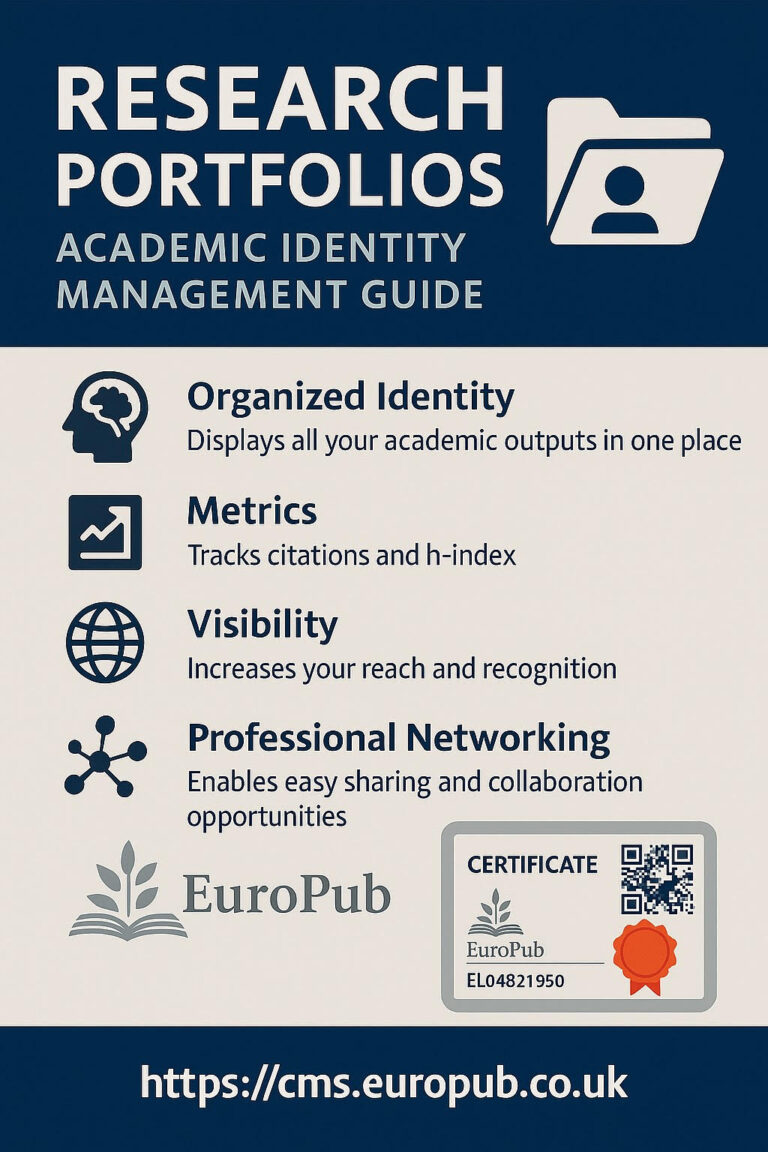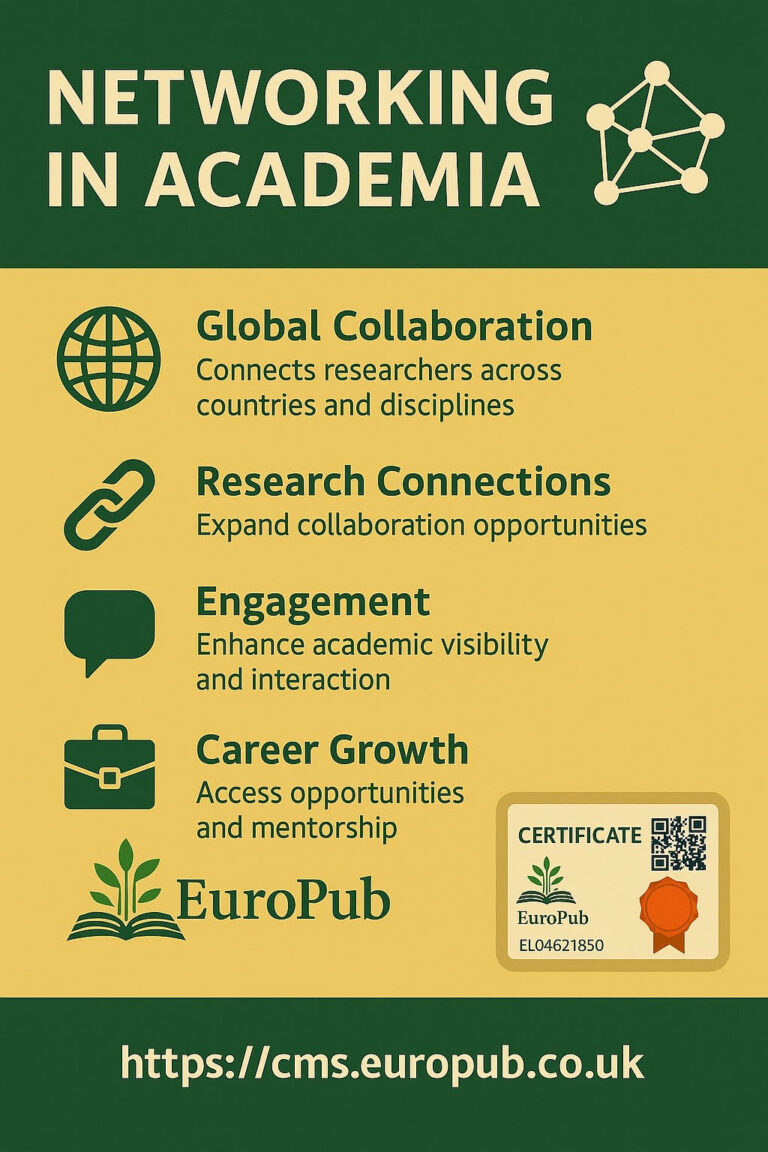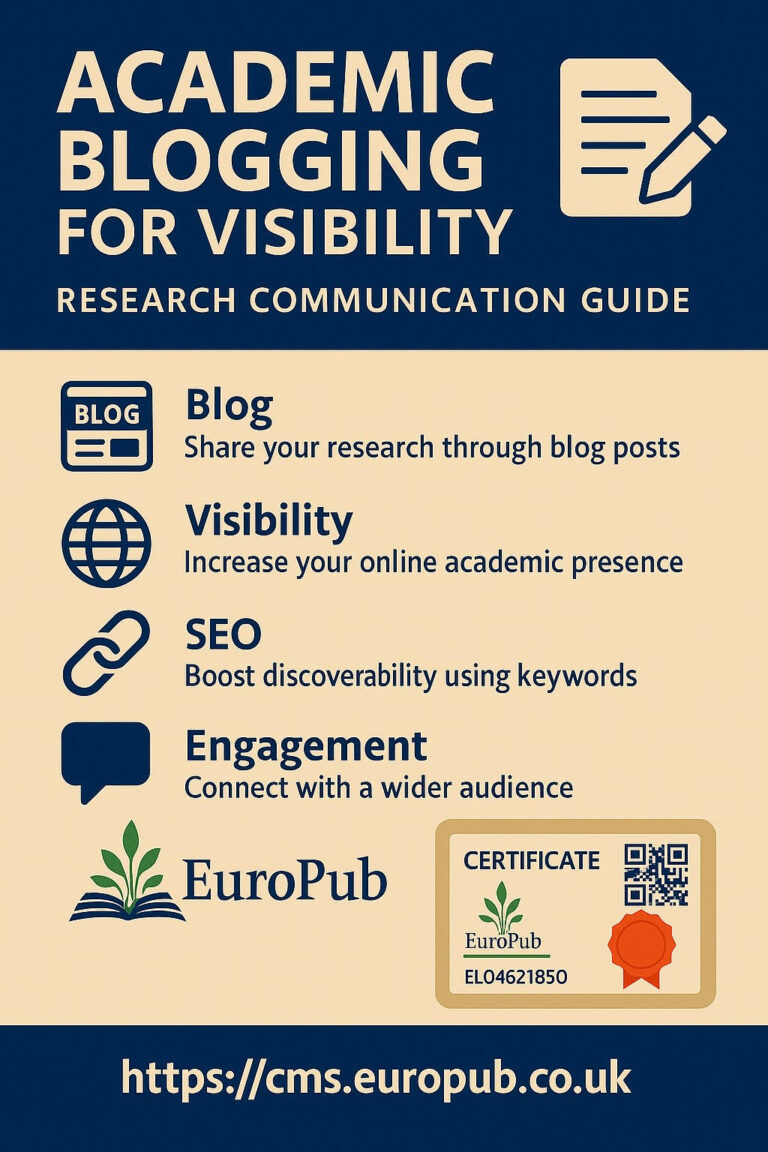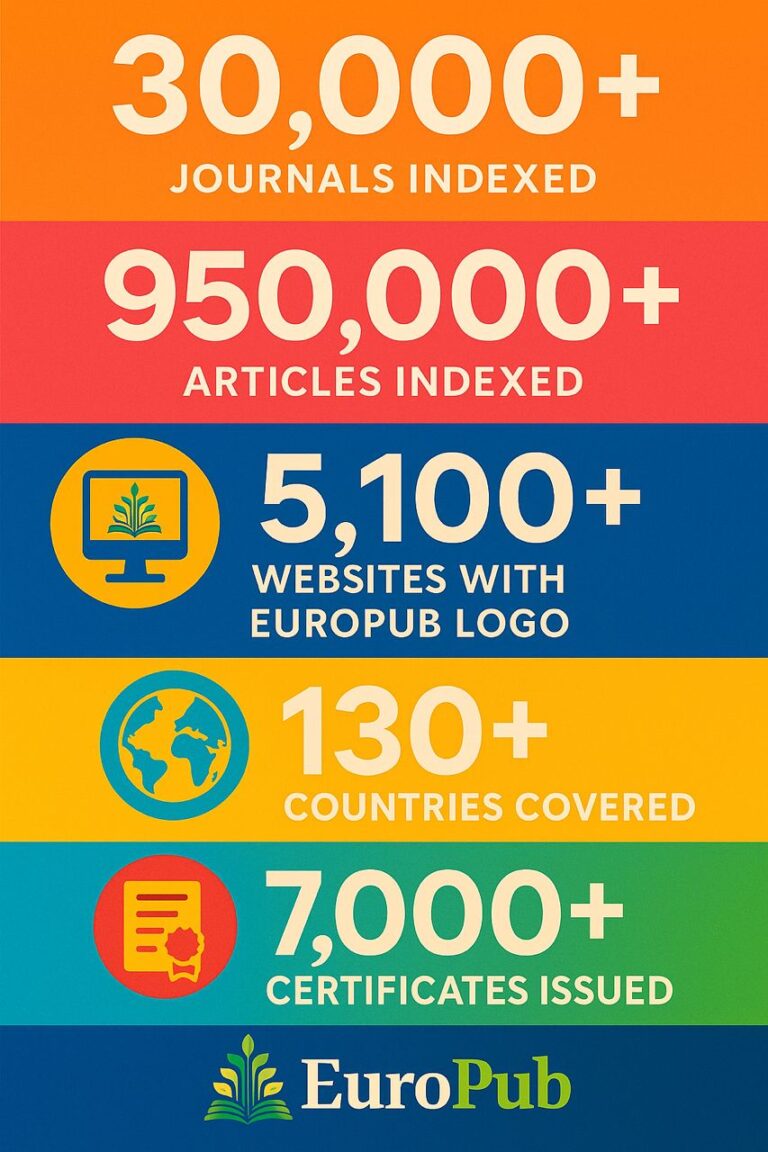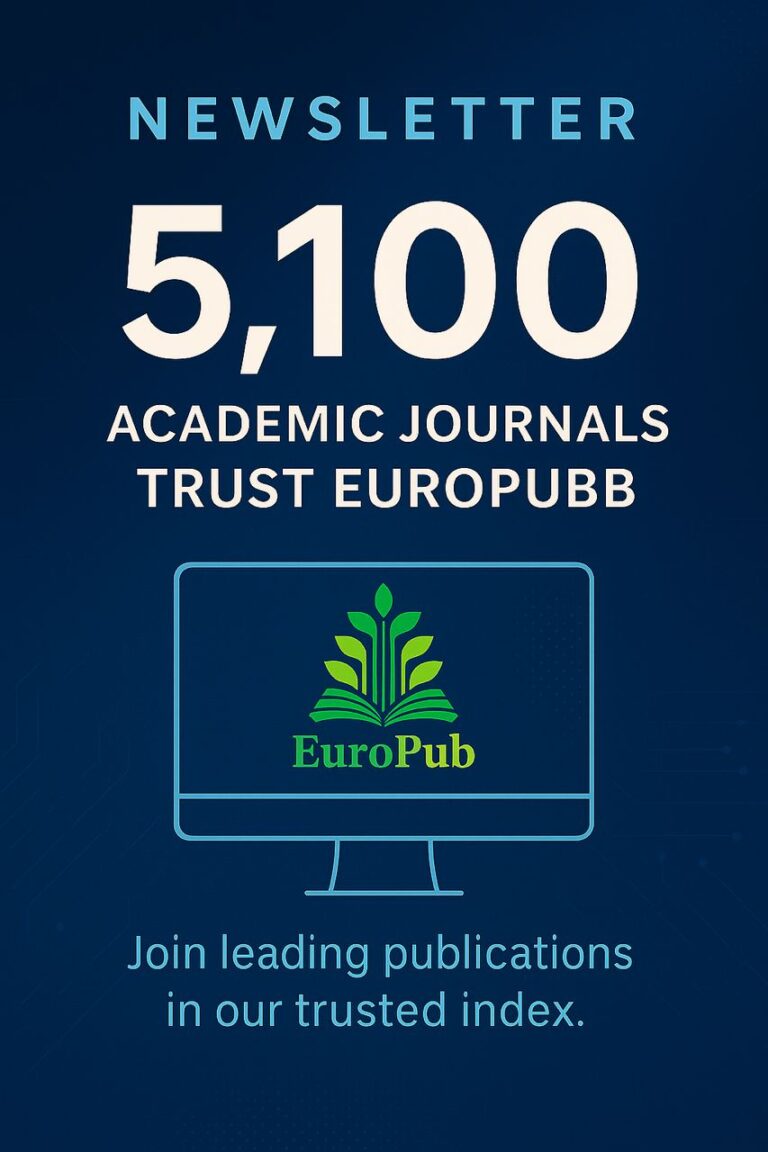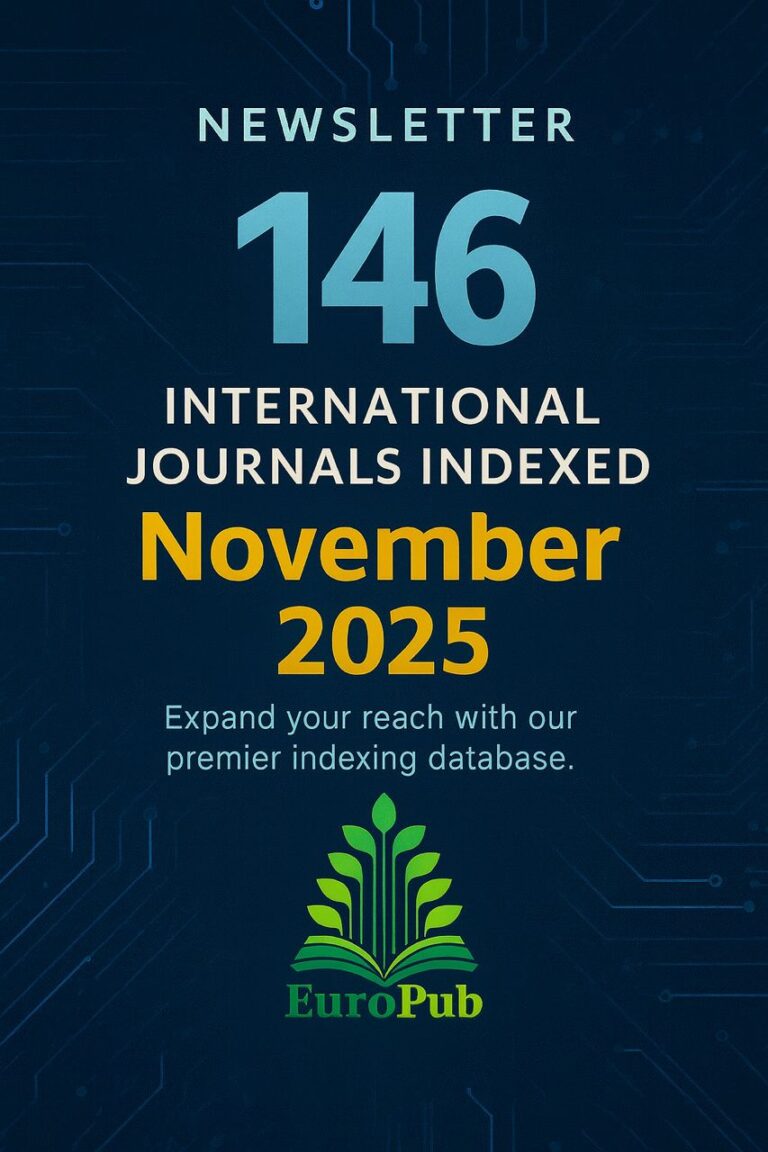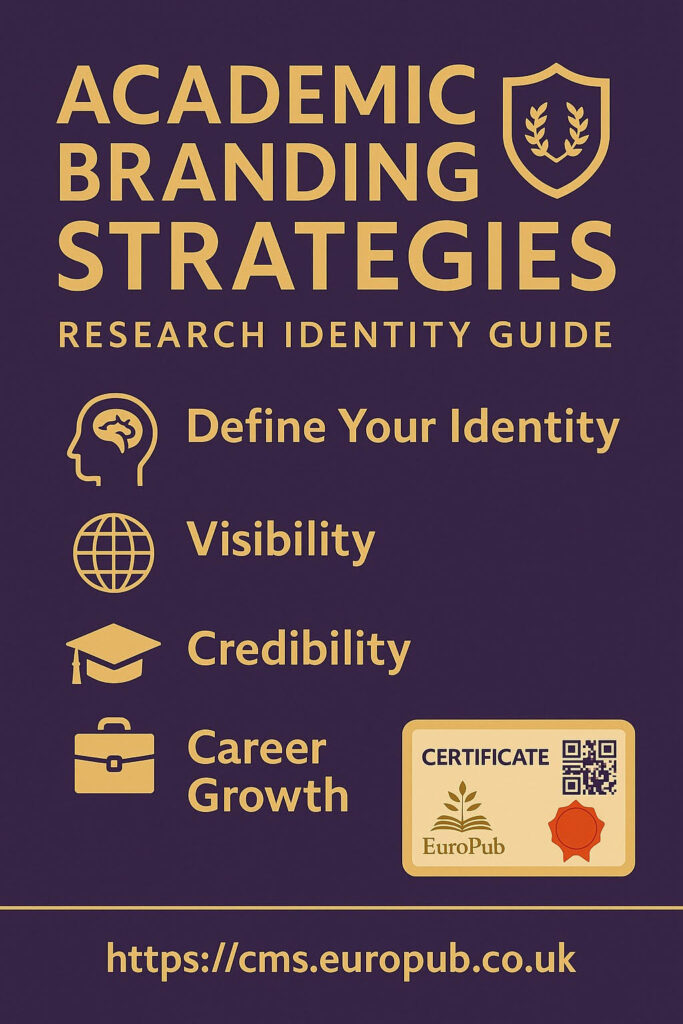
Academic branding means building a professional identity that communicates your expertise, achievements, and credibility.
It helps you stand out in your discipline, attract collaborators, funding, and recognition from peers, journals, and institutions.
 Why Academic Branding Matters
Why Academic Branding Matters
| Benefit | Explanation |
|---|---|
 Visibility Visibility | Makes your research more discoverable across databases |
 Credibility Credibility | Builds trust among editors, reviewers, and institutions |
 Career Advancement Career Advancement | Strengthens your academic CV and grant prospects |
 Global Recognition Global Recognition | Highlights your international research influence |
 Collaboration Collaboration | Encourages invitations and cross-disciplinary projects |
 Core Elements of Academic Branding
Core Elements of Academic Branding
 Define Your Research Identity
Define Your Research Identity
- Identify your main field, specialization, and unique contribution.
- Create a consistent tagline or summary (e.g., “Integrating AI and Animal Science for Sustainable Research”).
- List 3–5 keywords that describe your focus area.
 Optimize Your Academic Profiles
Optimize Your Academic Profiles
Maintain complete and updated profiles across platforms:
- ORCID — Global researcher ID
- Google Scholar — Citations and visibility
- Scopus Author ID — Indexed metrics
- Publons — Peer-review and editorial record
- Europub Certificates — Verified academic credibility
Ensure consistent spelling of your name, institution, and contact email everywhere.
 Create a Personal Research Website or Page
Create a Personal Research Website or Page
Include:
- Biography & academic mission
- Publication list (with DOIs or EuroCodes)
- Project summaries & awards
- Downloadable CV or certificate links
- Contact and social media handles
 Tip: Link your Europub certificate badge directly to your profile for authenticity.
Tip: Link your Europub certificate badge directly to your profile for authenticity.
 Publish and Share Strategically
Publish and Share Strategically
- Publish in reputable indexed journals (Scopus, WoS).
- Convert your publications into summaries, infographics, or short blog posts for non-specialist readers.
- Use consistent author identifiers (DOI, EuroCode).
 Engage Through Social Media
Engage Through Social Media
Be active on:
- LinkedIn – share achievements & connect with professionals
- X (Twitter) – participate in #AcademicTwitter discussions
- ResearchGate – answer questions, upload your work
- YouTube – upload lecture snippets or research presentations
Consistency + value = trust.
 Visual Branding Tools
Visual Branding Tools
- Use a professional headshot and academic logo (if institution allows).
- Maintain a consistent color palette and typography across slides, CVs, and posts.
- Add verified badges from Europub or ORCID to strengthen reputation.
 Advanced Branding Techniques
Advanced Branding Techniques
| Technique | Purpose |
|---|---|
 Create a research tagline Create a research tagline | Summarizes your expertise instantly |
 Link profiles together Link profiles together | Improves search engine results |
 Guest write for blogs or journals Guest write for blogs or journals | Builds credibility outside your circle |
 Speak at events Speak at events | Boosts academic visibility |
 Earn certificates & awards Earn certificates & awards | Validates expertise through credentials |
 Common Branding Mistakes
Common Branding Mistakes
 Using inconsistent names across platforms
Using inconsistent names across platforms Ignoring profile updates for years
Ignoring profile updates for years Over-self-promotion or exaggerated claims
Over-self-promotion or exaggerated claims Poor-quality visuals and grammar errors
Poor-quality visuals and grammar errors Not verifying credentials or certificates
Not verifying credentials or certificates
 Ethics in Academic Branding
Ethics in Academic Branding
- Present achievements honestly — avoid false claims or plagiarism.
- Respect confidentiality of peer reviews and unpublished work.
- Credit collaborators, institutions, and funding sources properly.
- Follow COPE’s ethics guidelines.
 Useful Resources
Useful Resources
| Resource | Link |
|---|---|
| ORCID | https://orcid.org |
| Google Scholar | https://scholar.google.com |
| Scopus Author ID | https://www.scopus.com |
| https://www.linkedin.com | |
| Europub Certificate System | https://cms.europub.co.uk |
| Europub Database | https://europub.co.uk |
| Europub Scientific News | https://news.europub.co.uk |
 FAQs — Academic Branding
FAQs — Academic Branding
 1. What is the difference between personal and academic branding?
1. What is the difference between personal and academic branding?
Personal branding shows who you are as an individual; academic branding focuses on your research identity and scholarly influence.
 2. How can branding help me get citations?
2. How can branding help me get citations?
Visibility and consistent author identity make your work easier to find, read, and cite.
 3. Should early-career researchers start branding?
3. Should early-career researchers start branding?
Absolutely — even small efforts like updating profiles and posting insights can build long-term recognition.
 4. Is it acceptable to promote my work on social media?
4. Is it acceptable to promote my work on social media?
Yes, if done professionally. Share results, insights, or collaborations — not just links.
 5. How often should I update my online profiles?
5. How often should I update my online profiles?
At least every three months or after each publication or certificate update.
 6. Can Europub help with branding?
6. Can Europub help with branding?
Yes — Europub Certificates verify achievements, impact metrics, and author authenticity, strengthening your research reputation.
 Europub Certification Reminder
Europub Certification Reminder
Boost your visibility and credibility with Europub’s verified certificates:
- Academic Branding Certificate
- Research Identity Verification
- Visibility & Impact Recognition Badge
 Apply now → https://cms.europub.co.uk
Apply now → https://cms.europub.co.uk
